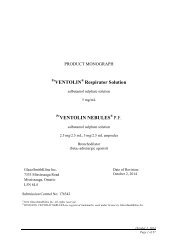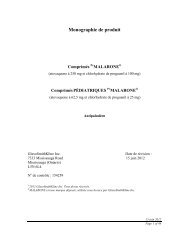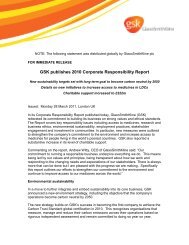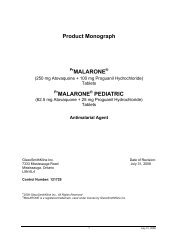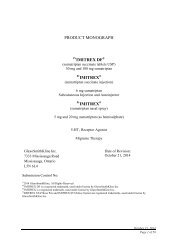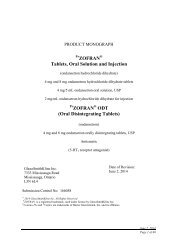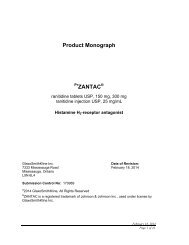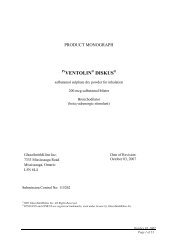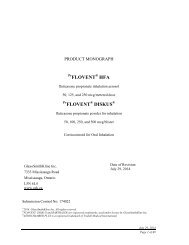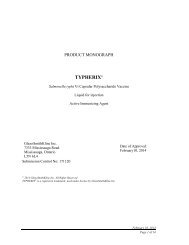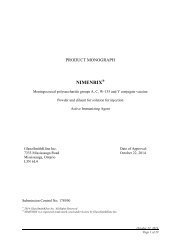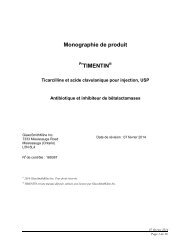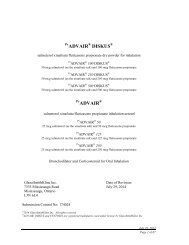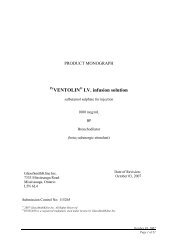Prescribing Information PARNATE - GlaxoSmithKline
Prescribing Information PARNATE - GlaxoSmithKline
Prescribing Information PARNATE - GlaxoSmithKline
You also want an ePaper? Increase the reach of your titles
YUMPU automatically turns print PDFs into web optimized ePapers that Google loves.
Warnings<br />
Hypertensive crisis: The most important adverse reaction associated with <strong>PARNATE</strong> ® is<br />
hypertensive crisis, which has sometimes been fatal. This response is not usually doserelated.<br />
It is associated with a distinctive reaction characterized by some or all of the<br />
following symptoms: occipital headache which may radiate frontally, palpitation, neck<br />
stiffness or soreness, nausea or vomiting, sweating (sometimes with fever and<br />
sometimes with cold, clammy skin) with early pallor followed later by flushing, and<br />
photophobia. Either tachycardia or bradycardia may be present, sometimes associated<br />
with constricting chest pain. Mydriasis may occur.<br />
The occipital headache, together with pain and stiffness in the cervical muscles, may<br />
mimic subarachnoid hemorrhage, but can equally be associated with actual intracranial<br />
bleeding, as in other conditions where a sudden rise in blood pressure occurs. Cases of<br />
such bleeding have been reported, some of which have been fatal.<br />
Blood pressure should be followed closely in patients taking <strong>PARNATE</strong> ® to detect<br />
evidence of any pressor response. It is emphasized that full reliance should not be<br />
placed on blood pressure readings, but that the patient should also be observed<br />
frequently.<br />
Therapy should be discontinued immediately upon the occurrence of palpitation or<br />
frequent headache during <strong>PARNATE</strong> ® therapy. These signs may be prodromal of a<br />
hypertensive reaction. Patients should be instructed to report promptly the occurrence<br />
of headache or other symptoms.<br />
If a hypertensive reaction occurs, <strong>PARNATE</strong> ® should be discontinued and therapy to<br />
lower blood pressure should be given immediate consideration. Headache tends to<br />
abate as blood pressure decreases. On the basis of present evidence, phentolamine is<br />
recommended for use in acute cases. (the dosage reported for phentolamine is 5 mg<br />
I.V. administered slowly.) Do not use parenteral reserpine or rauwolfia alkaloids for the<br />
treatment of a hypertensive crisis as they may, by releasing catecholamines, exacerbate<br />
the condition. Care should be taken to administer these drugs in such a way as to avoid<br />
producing an excessive hypotensive effect. Fever should be managed by means of<br />
8 June 19, 2013



